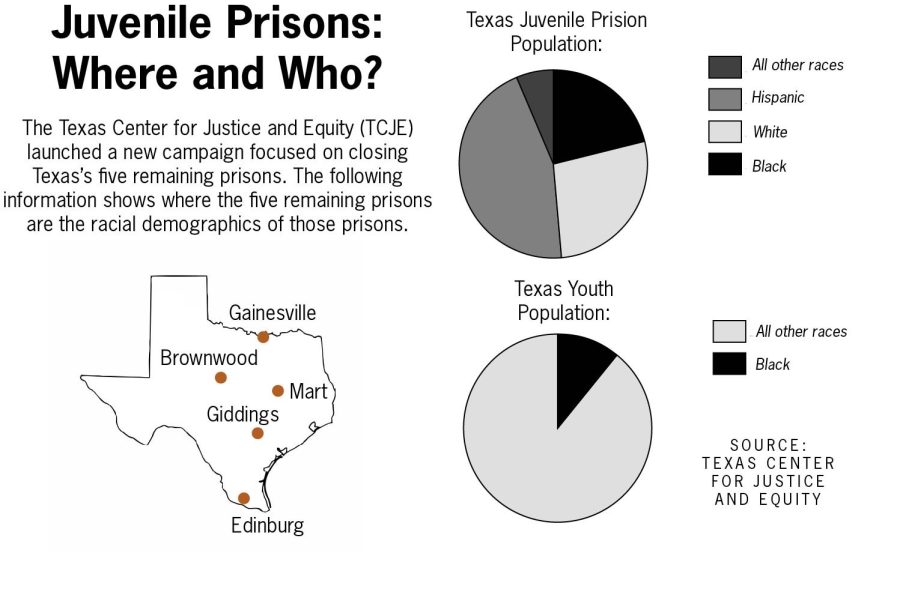Finish the 5: UT students work with local organization to advocate for abolition of last Texas youth prisons
February 2, 2023
Content warning: This story mentions suicide.
The Austin Liberation Youth Movement, a student-led organization that includes UT students, is advocating for the closure of the last five youth prisons in Texas through their Finish the 5 campaign.
“We need a new system of accountability,” said Krupali Kumar, co-founder of the Austin Liberation Youth Movement. “If we’re looking at a lot of what these kids are in prison for, a lot of them are because of developmental behaviors. They need the right intervention. Prison is not an intervention — prison is a form of punishment.”
The group wants the Texas Juvenile Justice Department to close its facilities in Edinburg, Gainesville, Giddings, Mart and Brownwood by the end of 2027, claiming prison conditions are inhumane and do not prioritize rehabilitation. The campaign is supported by the Texas Center for Justice and Equity, which fights to transform the Texas prison system.
“It is helping to increase people’s consciousness about prisons and about the carceral system,” Kumar said. “We believe that accountability is not punishment. When people think of it that way, I think it shifts a lot of narratives about how we deal with people who’ve done harm. Harm and crime is inevitable, it will happen. The question is, how are we dealing with it?”
According to their website, Finish the 5 aims to redistribute federal funding from prisons to create a new Office of Youth and Community Restoration at the Texas Health and Human Services Commission. In place of these larger facilities, the organization believes in creating more curated facilities closer to the youth’s homes.
A September 2022 report from the Texas Tribune stated the Texas juvenile prison system was near collapse due to a 70% turnover rate of employees which negatively impacted residents. The Tribune reported the prisons left some juveniles in cells for as many as 22 hours a day which forced them to use water bottles and lunch trays as toilets. The report also found that almost half of all residents are under suicide watch.
Prior to the Tribune’s reporting, the Department of Justice began investigating the TJJD for claims of mistreatment.
“TJJD vigorously supports the development of local diversion and prevention programs at the county level through state-funded grants and a variety of collaborations,” said TJJD spokesperson Barbara Kessler in an email. “We and our county juvenile justice partners aim to keep justice-involved youth as shallow in the system as possible. When that’s not possible, judges will commit high-need youth to TJJD for a chance to reform before they become adults, when their offenses would send them to adult prison.”
Over the next five years, Finish the 5 hopes to change the juvenile prison structure by strengthening community resources to more accurately address rehabilitation for youths sentenced to prison. Eventually, they hope to completely decriminalize youth and remove them from the criminal justice system altogether.
“To be able to close these prisons within the next five years is a huge step in the right direction,” said Amani Ahmad, a sociology freshman involved in the campaign. “Especially since 2020, we’ve heard a lot of people talk about abolition, and a lot of people have all of these ideas about regenerative justice, restorative justice and community care. I think that that really starts with our children and the next generation.”



